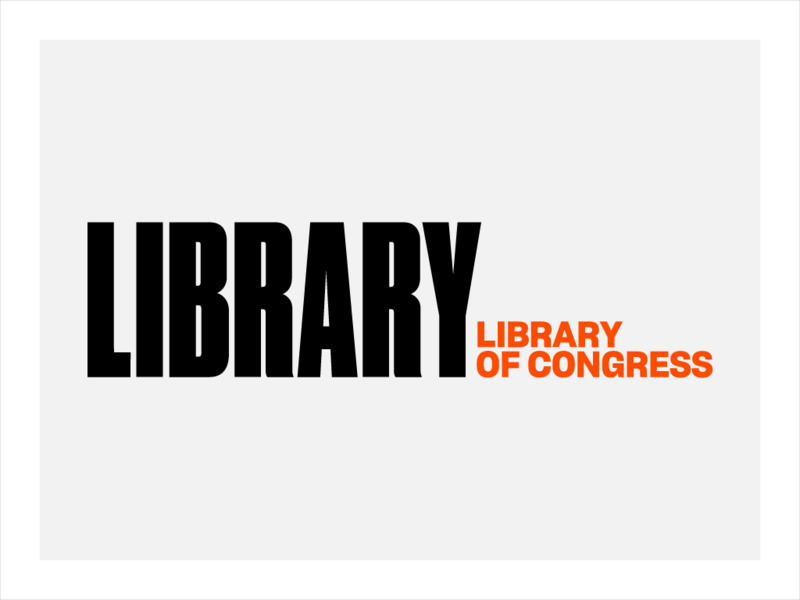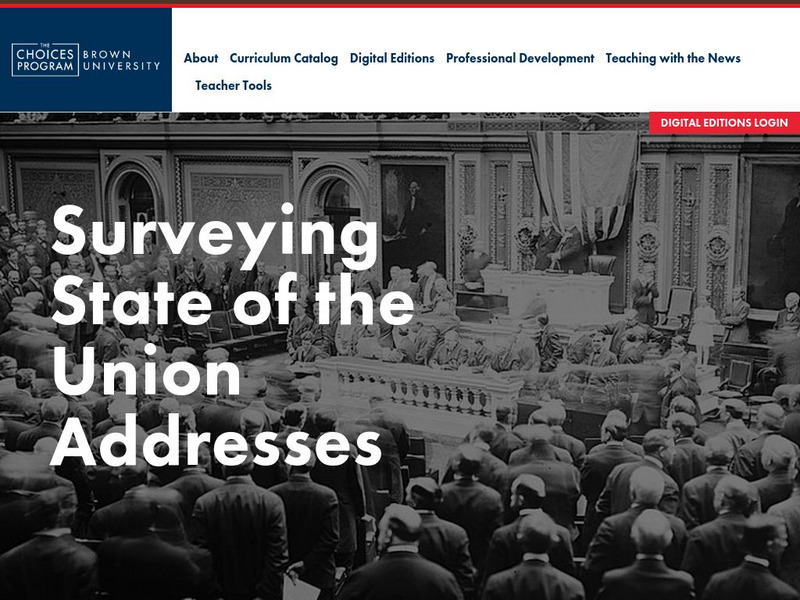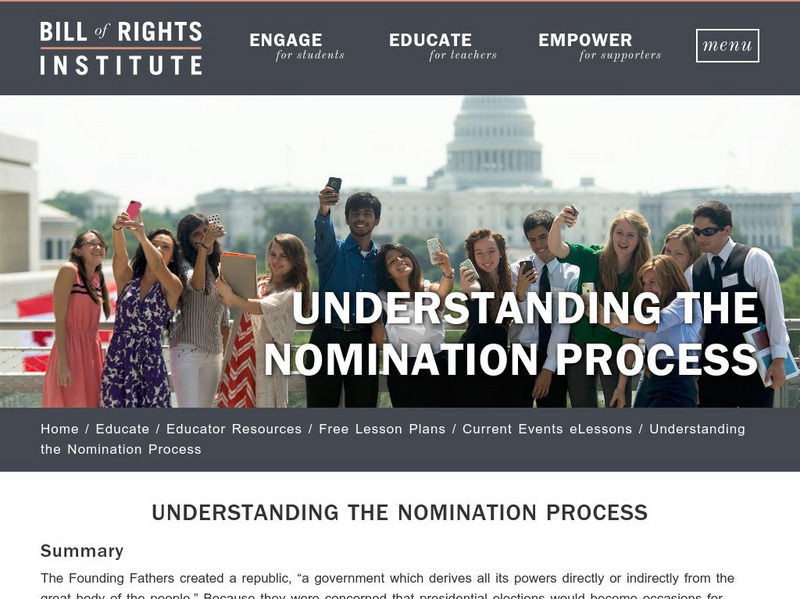Center For Civic Education
Center for Civic Education: Independence Day: Fundamental Ideas About Government
In this lesson, students will examine some of the fundamental ideas about government that is contained in the Declaration of Independence and the Preamble to the U.S. Constitution. When the lesson is completed, students should be able to...
iCivics
I Civics: Federalists & Anti Federalists
Look at the debate and eventual compromise, between the Federalists and Anti-Federalists that occurred around the creation of the U.S. Constitution.
iCivics
I Civics: u.s. V. Nixon (1974)
This mini-lesson covers the basics of the Supreme Court's decision that then-sitting President Nixon had to turn over some recordings of his presidential communications to a court of law. Students learn about the Watergate break-in, the...
Other
Our Courts: Bill of Rights: You Mean I've Got Rights? [Pdf]
A great, active lesson about the Bill of Rights. Students compare rights they think they should have with the rights in the actual amendments to the U.S. Constitution. The language of the amendments is broken down into simpler English so...
iCivics
I Civics: Changing the Constitution
America's constitutional government has changed over time as a result of amendments to the U.S. Constitution, Supreme Court decisions, legislation, and other practices. Students will use the seven basic principles found in our government...
Other
Gunston Hall Plantation: Discover George Mason
Lesson plans, activities, and resources for learning about George Mason and his contributions to Virginia statehood and in forging the U.S. Constitution and Bill of Rights.
US National Archives
Nara: Teaching With Documents: Watergate and the Constitution
Using documents from the U.S. Justice Department, students analyze the events following the revelations of the Watergate scandal, and the legal and constitutional arguments that ensued over whether Nixon should or could be indicted after...
Bill of Rights Institute
Bill of Rights Institute: The Federal Budget and the Constitution
What responsibilities belong to the U.S. President and the Congressional houses when it comes to establishing the federal budget? Take a look at these resources and incorporate this lesson into classroom learning.
Library of Congress
Loc: The Constitution: Counter Revolution or National Salvation
Using primary texts and prior study of Colonial America and the Revolution, young scholars examine "what type of government would best represent the ideals of the American Revolution." Worksheets, discussions, and role-playing within...
TED Talks
Ted: Ted Ed: The Making of the American Constitution
A brief video providing background information on the Constitutional Convention. [3:58] The video is followed by a quiz and a list of additional resources.
iCivics
I Civics: Comparative Constitutions
Students explore how the US Constitution is similar to and different from state constitutions. Uses the constitutions of Florida and Virginia as examples.
Teaching American History
Teaching American History: From Bullets to Ballots Chapter 2
John Zvesper's second chapter in his book, From Bullets to Ballots: The Election of 1800 and the First Peaceful Transfer of Political Power discusses the Lessons in Constitution Making.
Bill of Rights Institute
Bill of Rights Institute: Gouverneur Morris
A lesson plan introducing or revisiting the role of Gouverneur Morris in the planning and writing of the United States Constitution.
PBS
Structure of Congress and the Legislative Process Lesson
This lesson plan explores the structure of Congress and the legislative process. There is an introduction, a research activity, an assessment, and a role play activity.
PBS
Pbs News Hour: Your Safety and Security or Your Civil Liberties Lesson
The object of this lesson is to take a look at the USA Patriot Act and the controversies around the Act. Does the Patriot Act defy our Civil Liberties? This lesson will explore that question and more.
PBS
Pbs News Hour: Getting to Democracy, Lesson Plan
With the end of major military action in Iraq, what obstacles do the people of Iraq and the coalition face in rebuilding their country? With this lesson, students will compare what is happening in Iraq to what happened after World War II...
Choices Program, Brown University
Choices: Teaching With the News: Surveying State of the Union Addresses
Learning module with multi-media resources helps students understand the constitutional basis and history of the State of the Union Address, identifying important historic themes and significant topics. Includes video, graphic...
Bill of Rights Institute
Bill of Rights Institute: Understanding the Nomination Process
From its conception in the United States Constitution, to necessary adjustments in the 12th Amendment, learners will understand the nomination process and role of political parties in establishing a president with the aid of this lesson.
iCivics
I Civics: We Got This!
In this lesson plan, students explore how colonial government was both similar to and different from government in Britain and how it influenced the government we have today.
US National Archives
National Archives: Constitutional Issues: Watergate and the Constitution
This lesson plan deals with the constitutional issue of indictment and impeachment of a U.S. President. Includes original documents and related teaching activities.
Discovery Education
Discovery Education: A Nation's Voice
A Nation's Voice is a lesson plan that uses internet sites, magazines and books, electronic encyclopedias and databases to understand the policy making of the U.S.
American Bar Association
American Bar Association: What Does the Preamble of the Constitution Mean? [Pdf]
A lesson plan to help students understand the preamble of the U. S. Constitution.
University of Nebraska Omaha
Ec Ed Web: How Has the Constitution Shaped the Economic System in the Us?
This lesson plan deals with how the U.S. Constitution has shaped our economic system. Provides standards, objectives, and materials.
Constitutional Rights Foundation
Constitutional Rights Foundation: Aids in Africa
Activity-based resource on the AIDS epidemic and Africa. Students answer a set of questions for discussion and participate in an activity in which they analyze the literature and make recommendations as if from the U.S. State Department....













